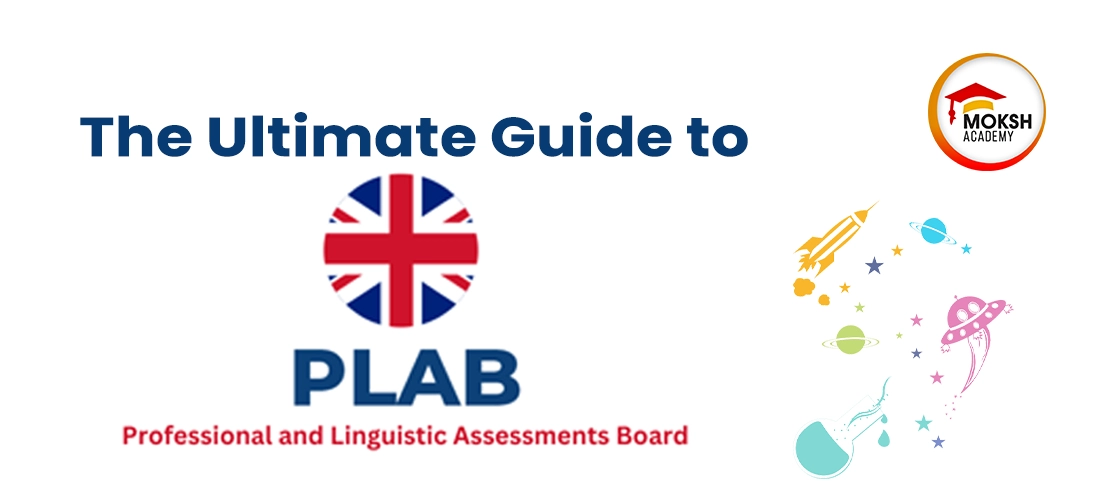
Introduction to PLAB
The Professional and Linguistic Assessments Board (PLAB) is a crucial step for international medical graduates who wish to practice medicine in the United Kingdom. It is a two-part exam designed to assess the knowledge, skills, and professionalism of doctors who have qualified outside of the UK or European Economic Area. In this comprehensive guide, we will delve into the details of the PLAB exam, covering everything from the exam structure to syllabus, and exam fees. Whether you are a medical graduate planning to take the PLAB exam or simply curious about the process, this guide will provide you with all the information you need for exam success.
Understanding the PLAB Exam
The PLAB exam consists of two parts: PLAB 1 and PLAB 2. PLAB 1 is a multiple-choice question (MCQ) exam that assesses your ability to apply knowledge to clinical practice. It covers a wide range of medical topics, including anatomy, physiology, pharmacology, and ethics. PLAB 2, on the other hand, is an objective structured clinical examination (OSCE) that tests your practical skills, communication abilities, and professionalism.
PLAB 1 Exam Overview and Structure
PLAB 1 is a computer-based exam that consists of 180 multiple-choice questions. It is divided into two parts, with each part lasting three hours. The questions are designed to assess your clinical knowledge and decision-making skills. It can be taken in many places around the world. They run March and November exams all over the world and also in the UK, where they have two extra exam dates usually in June and September. To register for PLAB 1, you need to create an account on the General Medical Council (GMC) website and pay the exam fee. It is essential to familiarize yourself with the exam structure and format to ensure effective preparation.
PLAB 1 Syllabus and Study Resources
To succeed in PLAB 1, it is crucial to have a clear understanding of the PLAB 1 syllabus. The PLAB 1 syllabus covers a wide range of medical topics, including General Medicine, Surgery, obs/gyn, Opthalmology, psychiatry, paediatrics, ENT. It is recommended to use a combination of textbooks, online resources, and question banks to study for PLAB 1. Some popular study resources include "PLAB Made Easy" and "The PLAB Blueprint." These resources provide comprehensive coverage of the PLAB 1 syllabus and offer practice questions to test your knowledge. It is efficient to understand the whole PLAB syllabus.
PLAB 1 Exam Dates and Registration Process
PLAB 1 is held several times a year, It can be taken in many places around the world. They run March and November exams all over the world and also in the UK, where they have two extra exam dates usually in June and September. The PLAB exam dates are announced on the GMC website, and registration opens approximately two months before the PLAB exam date. To register for PLAB 1, you need to create an account on the GMC website, fill in the required details, and pay the exam fee. It is advisable to check the website regularly for updates on PLAB exam dates and registration.
PLAB 1 Cost and Financial Considerations
Taking the PLAB exam involves certain costs that need to be considered during your preparation. The exam fee for PLAB 1 is $316, which is non-refundable. In addition to the PLAB 1 cost, you need to factor in the cost of study materials, travel expenses, and accommodation if you are taking the exam in a different city or country. It is essential to budget wisely for the PLAB exam cost and plan your finances accordingly to avoid any last-minute financial stress.
PLAB 2 Exam Overview and Structure
Once you have successfully cleared PLAB 1, you can proceed to PLAB 2. PLAB 2 is an objective structured clinical examination (OSCE) that tests your clinical and communication skills. It consists of 18 stations, each lasting eight minutes, and covers a range of scenarios that assess your ability to diagnose and manage medical conditions, as well as communicate effectively with patients.
PLAB 2 Syllabus and Study Resources
The PLAB 2 syllabus covers a wide range of clinical topics, including history taking, physical examination, clinical management, and communication skills. To prepare for PLAB 2, it is recommended to use a combination of textbooks, online resources, and practical skills workshops. Some popular study resources for PLAB 2 include "Clinical Skills for PLAB and Beyond" by Dr. Maged Hussein and "PLAB 2: 100 Objective Structured Clinical Examinations (OSCEs)" by Dr. Una Coales. It is efficient to understand the whole PLAB syllabus.
PLAB 2 Exam Dates and Registration Process
PLAB 2 is held throughout the year. The exam is held in the UK (Manchester). The PLAB exam dates are announced on the GMC website, and registration opens approximately two months before the PLAB exam date. To register for PLAB 2, you need to create an account on the GMC website, fill in the required details, and pay the exam fee. It is important to plan ahead and book your PLAB exam early to secure your preferred date.
PLAB 2 Cost and Financial Considerations
Taking the PLAB 2 exam involves certain costs that need to be considered. The exam fee for PLAB 2 is $1158, which is non-refundable. In addition to the exam fee, you need to factor in the cost of study materials, travel expenses, and accommodation if you are taking the exam in a different city or country. It is important to budget wisely for the PLAB exam cost and plan your finances accordingly to avoid any financial stress during your preparation.
PLAB 2 Result and Next Steps
Once you have completed the PLAB 2 exam, the results are usually published within four to six weeks. You can access your PLAB 2 results by logging into your GMC account. If you have successfully passed both PLAB 1 and PLAB 2, you will receive a pass certificate, which allows you to apply for registration with the GMC and obtain a license to practice medicine in the UK. If you have not passed, it is important to analyze your performance, identify areas of improvement, and consider seeking guidance from mentors or educators to enhance your skills before attempting the exam again.
Conclusion: Your Path to PLAB Exam Success
The PLAB exam is a crucial step for international medical graduates who wish to practice medicine in the UK. By understanding the exam structure, familiarizing yourself with the syllabus, and utilizing the right study resources, you can increase your chances of success. Effective preparation, consistent practice, and a positive mindset are key to achieving your goals. Remember to stay focused, maintain a balanced approach to studying, and seek support from mentors or study groups when needed. With determination and perseverance, you can navigate the path to PLAB exam success and embark on a fulfilling medical career in the United Kingdom.



